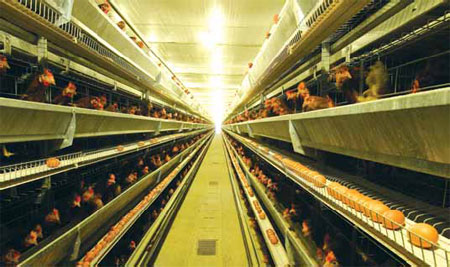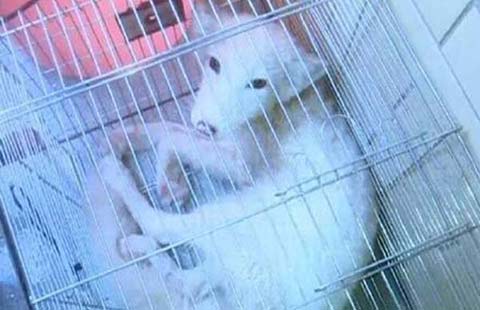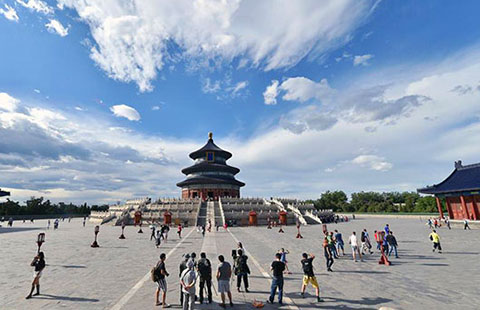DQY rules the roost in modern poultry industry
By Han Tianyang (China Daily) Updated: 2012-09-11 08:07
|
Modern egg production at Deqingyuan. Photos Provided to China Daily |
High-tech food safety standards and production at nation's largest producer
"If you enjoy eating an egg, why bother to find the hen that laid it?"
Such was the rejoinder famously used by renowned Chinese writer Qian Zhongshu to decline a journalist's interview.
But in the poultry business, it is not a superfluous question. Domestic egg companies should have inked codes on egg shells identifying farm and production dates to guarantee quality and even help trace an egg to its hen if need be, said Zhang Xuan, marketing director of Beijing DQY Agriculture Technology Co Ltd, the capital city's leading organic egg producer.
Twelve years ago, when Chinese consumers were still buying eggs in bulk without trademarks or dates or standards, DQY became the first Chinese company to produce and sell packaged, branded eggs with expiry dates.
"A product as small as a screw has a standard, but for eggs, such an important everyday food, there were no production standards at that time," Zhang said.
Things have only changed significantly following DQY's pioneering efforts. In supermarkets across the capital city, customers can easily find various brands of packed eggs, but the ratio of such products among all eggs in the market are still less than 5 percent, Zhang said.
"It's a 'blue ocean' market," said Zhang, referring to the open range of opportunities available. He joined DQY six years ago with firm expectations for the promising prospects of the fast-growing industry. "The proportion of high-standard eggs is estimated to increase by 7 to 10 percentages points by 2015 and before 2050, it will reach 95 percent."
Urban residents with their changing lifestyle increasingly want fresh agricultural products, he said, citing growing demand for clean, packaged vegetables that are ready to cook.
DQY now runs a farm in Yanqing county of Beijing where it has 3 million chickens and produces 1.6 million eggs every day. Due to capacity constraints, the majority of eggs - about 80 percent - supply the Beijing market, Zhang said.
He said the company is now building a new 25 sq km farm in Chuzhou, Anhui province that can house 7 million chickens. When it starts operation, the facility will make DQY the world's biggest egg and poultry producer with 10 million chickens and estimated annual production value of 2.8 billion yuan.
The company now has a national-level egg engineering and technology research center, the Chinese National Egg Engineering Research Center, and several other research facilities both at home and abroad. "Strong R&D and innovative talent are the core driving forces of the company," Zhang said.
DQY's advanced way of converting chicken manure into biogas for power generation also makes it stand out in the poultry industry. The company's plant near its Beijing farm can now generate 14 million kWh electricity from biogas.
It is part of the company's vision of the farm of the future, Zhang said.
Producing quality foods while protecting the environment, which can be realized by operating both a farm and an energy company simultaneously, he said.
"In the US new farm projects won't be approved if they don't have wholesome solutions for waste, and China will certainly walk this road," Zhang said.
DQY has also started to export its technology in bio energy overseas. Earlier this year, the company inked a deal with American meat supplier Smithfield Foods to jointly set up biofuel plants to use waste from more than 20 million pigs on Smithfield's farms to generate electricity.
"We are basically a company built on technology," Zhang said, adding that it benefited greatly from the science tradition and research strength at the Zhongguancun Haidian Science Park.
As one of the enterprises in the park, DQY is eligible for preferential human resource policies that could make life easier for its backbone employees.
The company has also received strong funding support from the park, Zhang said.
He added that DQY will go public in the next two to three years and the park also offers consultancy in related laws and policies to facilitate the process.
hantianyang@chinadaily.com.cn
(China Daily 09/11/2012 page7)
- Premier commends nation's teachers
- Helicopter fleets to double
- Prisoners freed under new amnesty
- Delegation salutes Tibet anniversary
- Officials are told to act as anti-graft watchdogs
- Great Wall safeguarded in united action
- Vice minister pledges more efforts to improve air quality
- Beijing’s efforts to control air pollution start to pay off
- China's military committed to reform
- Netizens rip singer over baby photos








